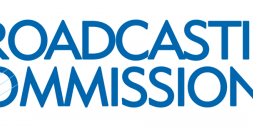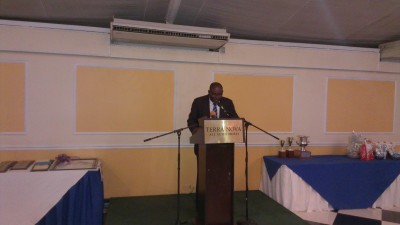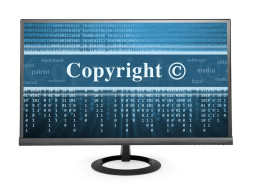
Presentation by Mr. Cordel Green, Executive Director of the Broadcasting Commission – Jamaica at the Advertising Agencies Association Awards Banquet – October 30, 2013: “Tough Decisions – The Dilemma of An Omoebic Digital Market”.
I am delighted to have been invited to make these remarks. Only a few days after accepting, did I get the harrowing feeling that I might have made a mistake. The topic on which I decided to speak, “Tough Decisions – The Dilemma of an Omoebic Digital Market”, is deceptively straightforward; but on closer examination it can explode in complexity. As JJ Wilson III puts it “the brave new world of information and communication technologies is more complicated, messy, opaque, and uncertain than leading policy models suggest”.
This view is consistent with a United States National Intelligence Council report, which states that global trends up to 2025, suggest major dis-continuities, shocks, and surprises.
In short, we are living in an era of unprecedented change and uncertainty; the only constant being innovation. We therefore have a compelling reason to look again at the free flow of information, through a different prism. This is because technological convergence is not just about an exponential leap in the dispersion of “digital” power, access and opportunities but also the concentration of tremendous power in the hands of those who control the organizing, sorting, filtering, and facilitation of access to portals and platforms.
It should therefore come as no surprise that tension exists between the demands of global business, competition for local audiences, and the expectations and choices of the user and consumer.
This tension played out recently between TVJ, cable operators and fans of the “The Voice”. Many irate cable subscribers complained about and questioned the basis on which the NBC cable channel was blocked, consequent on TVJ’s acquisition of the rights to broadcast the show on terrestrial television. Three issues contended in that dispute, which although related, are separate.
The first pertains to copyright. That one is straightforward. TVJ, having secured the rights from the producers of “The Voice” was entitled to exclusive broadcast of the programme via terrestrial television.
The second issue was that subscribers to cable seemed unaware that even in circumstances where a cable company could claim authorisation to distribute a cable channel or signal in Jamaica, the distribution rights can be trumped by copyright or the very terms of the distribution agreement. Let me read for you an example of a standard clause, which is found in many cable channel agreements:
3. Limit on Licence; Retention of Rights
“The license granted under this agreement is nonexclusive. The licensor may itself distribute or exhibit or grant to other Persons licenses to distribute or exhibit any of the Services or the content contained therein in any location, on any media and on whatever terms and conditions the Licensor desires
11. Content
“The content, selection, scheduling, substitution
And withdrawal of any programming, advertising, promotion or other content on the Service shall remain at all times within the sole discretion of the Licensor and may be changed at any time without notice to the Operator in accordance with the Licensor’s standard practice.”
The third issue is that Jamaica is in the United States Satellite footprint, which results in the incidental delivery of US cable programmes to the country. So, historically, Jamaica has been a natural part of the United States market for English language information and entertainment (for better or worse). The twenty-four hour accessibility of the US signals has created an expectation by Jamaican consumers that they should be able to view this programming.
There is, therefore, a need to balance the legitimate and natural expectations of satellite television consumers and the rights of copyright holders. In this regard, the Broadcasting Commission, insists on a licensing regime under which subscriber television providers are required to transmit only programming for which they have acquired the copyright.
However, some of the most popular US-originating channels are not available under negotiated licence in Jamaica because the holders of the rights to individual programmes have not authorised the channels’ distributors to make their programming available outside of the continental USA and its territories. Yet, these channel signals are still transmitted to and accessible in Jamaica on satellite receivers of the kind utilised by STV operators.
Significantly, unlike the Government of the Bahamas, Jamaica did not legislate a compulsory licensing regime, no doubt because it has been the subject of condemnation by Office of the US Trade Representative.
This issue is complicated by the fact that for some channels, Caribbean authorisation is negotiated as part of the Latin American Market. Consequently, Jamaican viewers are obliged to receive Spanish language programmes. We believe that these circumstances do not aid the Broadcasting Commission’s thrust to enforce copyright compliance and bring about stability in the content distribution market.
Against this background, in 2010, the Commission, taking account of relevant provisions of the WTO General Agreement on Trade in Services (GATS) and the US’ GATS commitments on audio-visual services, brought to the attention of the US authorities, via the Ministry of Foreign Affairs and Trade, the following issues and request for action:
1.That the Government of the United States, consistent with the recommendation of the US Trade Representative’s 2008 report, should actively encourage programmers and the US Motion Pictures Association to negotiate licensing agreements, which include the right to distribute to Jamaica when purchasing the right to distribute programming in the United States of America; and
2. That the Government of the United States actively encourage cable programmers to offer the same level of service to Jamaica as that offered to US territories in the region, as Jamaica is geographically in the US’ satellite footprint and shares English as a common language.
Let me say, and unequivocally, that I am here referring to right of access to channels and signals, not to the enforcement of copyright. The two issues are related but not synonymous. In that regard, let me be also clear in relation to enforcement of copyright. The Broadcasting Commission does not and will not tolerate any action by cable operators which violate or diminishes the value of any right to content which has been acquired by any free to air television station in Jamaica or any independent programme provider.
Now, given it is unrealistic to expect global players to prioritise small market problems, it would seem wise to counter the tensions I have outlined with regulations that incentivise production and distribution of locally created, locally originated and culturally relevant content.
This is the underlying basis of regulatory support for advertising reform on the cable platform. The Broadcasting Commission has submitted to the government that there should be a new advertising policy which would remove a ban on local advertising on cable, or put another way, lift a free-to-air- television monopoly on advertising. The policy is grounded in a quid pro quo. Any Jamaican entity which can provide indigenous programming, on a non-subscription basis, should have the opportunity to access advertising support.
There is concern about the capacity of advertising revenues to sustain traditional entities as well as new players. The market should decide that issue. In any event, it makes little sense to set limitations on how the market may evolve by stifling entrepreneurship and innovation – watchwords of this new communication environment.,/
I now make a concluding and necessary observation. Everything I have said goes with one caveat. It is not lost on the Broadcasting Commission that regulatory policies must evolve at a pace, which allows for considered, and pragmatic responses emerging and existing technological imperatives, customer and user preferences and aspirations, and of course local economic conditions including capital market volatility.
We are committed to an approach which is evidence- based, inclusive of the capacity to discern current and emerging trends, identify key variables, model and futurecast but eschewing the temptation to venture too far beyond likely near term scenarios and definitely never engaging in conclusive industry soothsaying.
(79)








